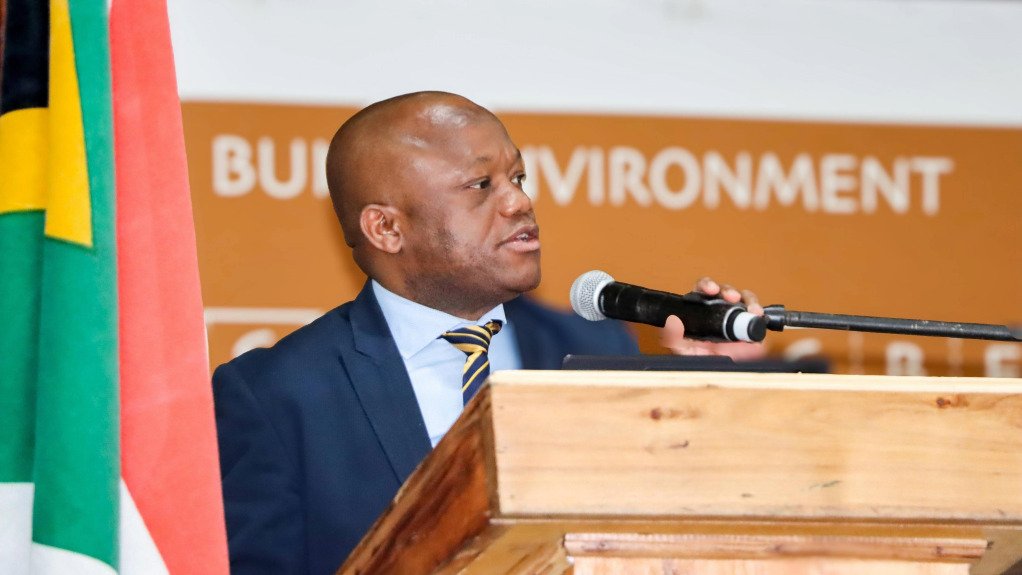Public Works and Infrastructure Deputy Minister Sihle Zikalala has invited the built environment industry to introduce innovative construction solutions to ensure that infrastructure being built in South Africa responds to the reality of climate change.
“All our infrastructure planning and construction must have climate change in mind,” he asserted during the opening of the CBE Built Environment Climate Change Indaba, in KwaZulu-Natal.
The Deputy Minister said recent infrastructure collapses owing to disasters, the 2022 floods which led to the death of over 400 people, and damage to infrastructure costing billions in provinces such as the Western Cape, Limpopo, Eastern Cape and Mpumalanga, had laid bare the reality that new construction methods and infrastructure maintenance were needed.
He argued that recent events should push players in the built environment into action, adding that, if action was not immediately taken to deal with the climate change crisis, many African counties could face economic sinkholes, with some countries already losing up to 5% of GDP.
“The Climate Change Act, which was assented to by President Cyril Ramaphosa in July, calls on all of us to take urgent steps to contribute to a just transition towards low-carbon, climate-resilient and ecologically sustainable economies and societies in line with the UN Sustainable Development Goals.
“It calls for the need for decision-making to consider the special needs and circumstances of localities and people that are particularly vulnerable to the adverse effects of climate change, including vulnerable workers and groups such as women, especially poor and rural women, children and persons with disabilities,” said Zikalala.
He thus called on professionals and stakeholders in the built environment to create communities that were climate resilient and to mitigate environmental degradation.
With this in mind, the Built Environment Climate Change Indaba acts as a direct response to pressing climate challenges, focused on bringing together stakeholders from the engineering and the built environment sector, disaster management and the South African Weather Service to co-create sustainable, resilient and equitable spaces that address climate change and socioeconomic disparities.
“The Department of Public Works and Infrastructure is contributing in mitigating against climate change by developing a green building policy to ensure that all our construction projects comply with international standards and minimize their impact on the ozone layer. This policy will essentially dictate the building of new social infrastructure across the country,” said Zikalala.
He called for the infusion of careful climate change planning strategies with climate resilience at their core, saying it was imperative that the industry weaved together the threads of climate science, architecture and urban design to create cities and human settlements that could withstand the challenges of a changing climate.
Edited by: Chanel de Bruyn
Creamer Media Senior Deputy Editor Online
EMAIL THIS ARTICLE SAVE THIS ARTICLE
ARTICLE ENQUIRY
To subscribe email subscriptions@creamermedia.co.za or click here
To advertise email advertising@creamermedia.co.za or click here













